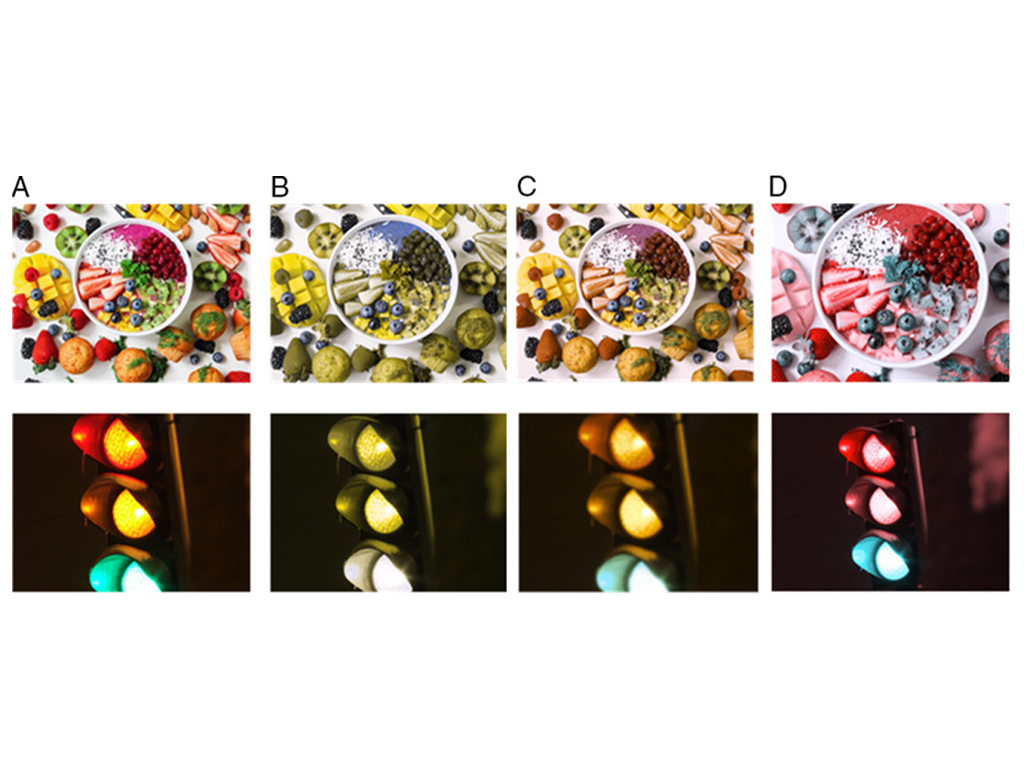
A team of researchers from Khalifa University has developed a new wearable that could help people with color blindness. While using dyes to develop lenses for glasses to help correct colorblindness is not new, the team has developed a method using 3D printing to manufacture customized glasses. Dr. Haider Butt, Associate Professor of Mechanical Engineering, Dr. Fahad Alam, Postdoctoral Fellow, Dr. Mohamed Elsherif, Postdoctoral Fellow, and Ahmed Salih, all Department of Mechanical Engineering, published their results in Advanced Engineering Materials. This research also inspired a Senior Design Project for undergraduate students Saif Abdulla Alnaqbi, Ali Saif Rashid Alshawi…
Read more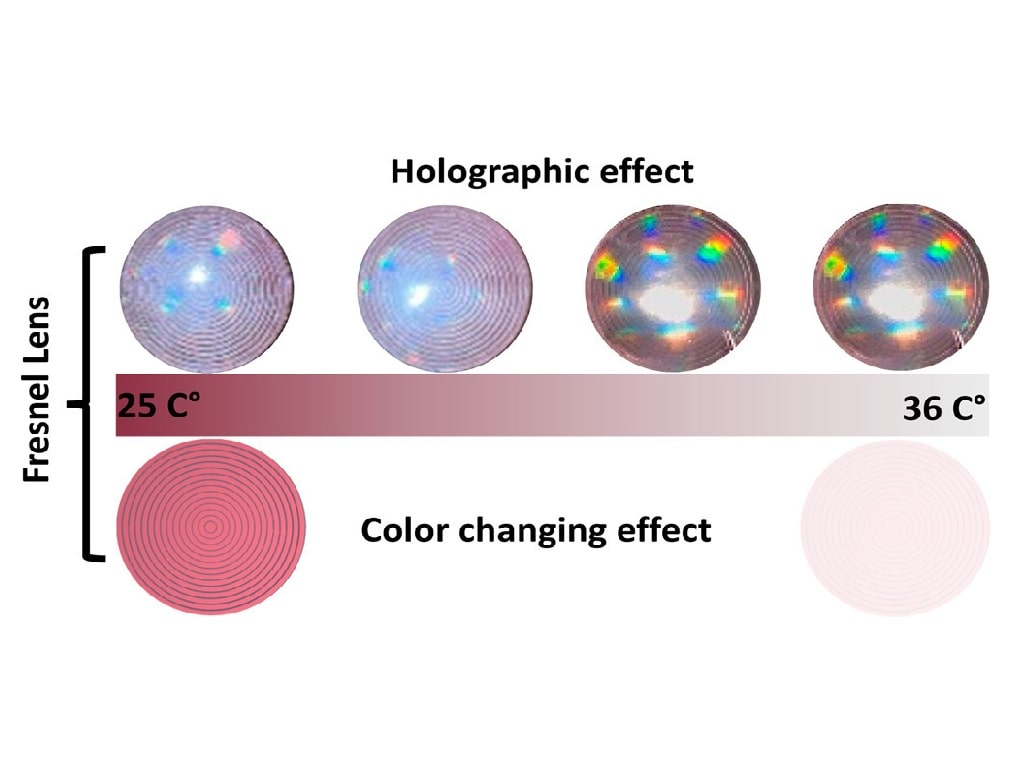
3D printing makes manufacturing regular lenses, and more recently Fresnel lenses, easy and cost-efficient, but now, additive manufacturing can be used to extend their functionality with enhanced optical properties and sensing abilities. A Khalifa University research team has used additive manufacturing techniques to develop five-dimensional Fresnel lenses, incorporating color-change phenomena and holographic diffraction effects. Dr. Haider Butt, Associate Professor, Murad Ali, Ph.D. candidate, and Dr. Fahad Alam, Postdoctoral Fellow, all Department of Mechanical Engineering, published their results in ACS Materials. In optical designs, spherical and aspherical lenses form and guide light. Aspherical lenses have a more complex surface…
Read more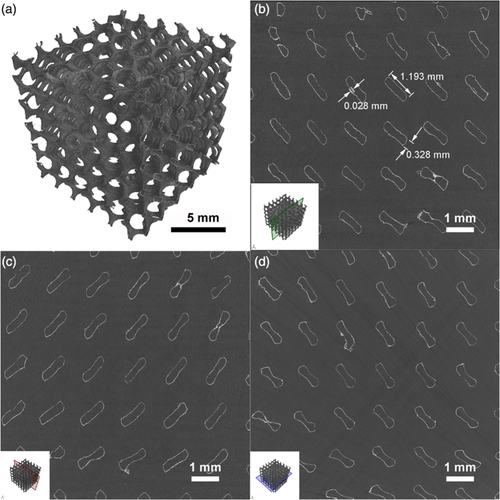
Pressure sensors are used in electronic devices across all industries and making them as accurate as possible means making them as thin as possible. Researchers from Khalifa University have developed a method to use a novel 2D material for highly-sensitive and tunable flexible pressure sensors. Compared with conventional rigid silicon-based electronics, thin, flexible electronics can withstand various deformations such as tension, compression, bending and twisting. Pressure sensors that can transform external pressure into electrical signals are an indispensable application of flexible electronics, particularly for biomedical applications. A team of researchers from Khalifa University has investigated how to…
Read more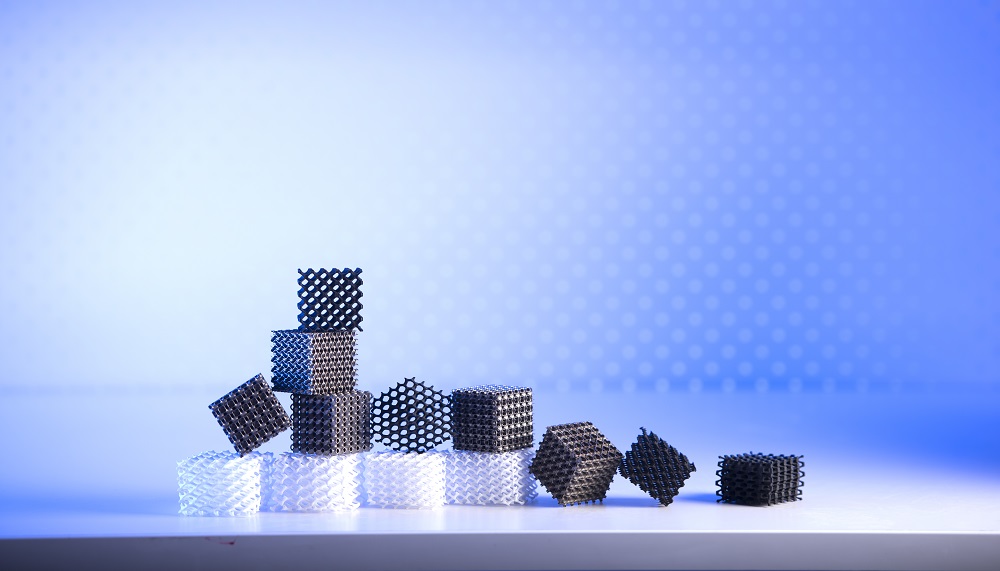
In a landmark review paper published in Advanced Engineering Materials, Dr. Rashid Abu Al-Rub, Acting Chair of Aerospace Engineering, Professor of Mechanical Engineering, and Director of the Advanced Digital and Additive Manufacturing (ADAM) Group at Khalifa University, and Dr. Oraib Al-Ketan, Post-doctoral Fellow in the ADAM Group, who recently moved to New York University Abu Dhabi (NYUAD) as a Research Scientist, have reviewed the state-of-the-art in the design, additive manufacturing, and multi-functional properties of novel types of architected metamaterials. These architected metamaterials have opened the door for more research and technological applications thanks to recent advances in digital design and…
Read more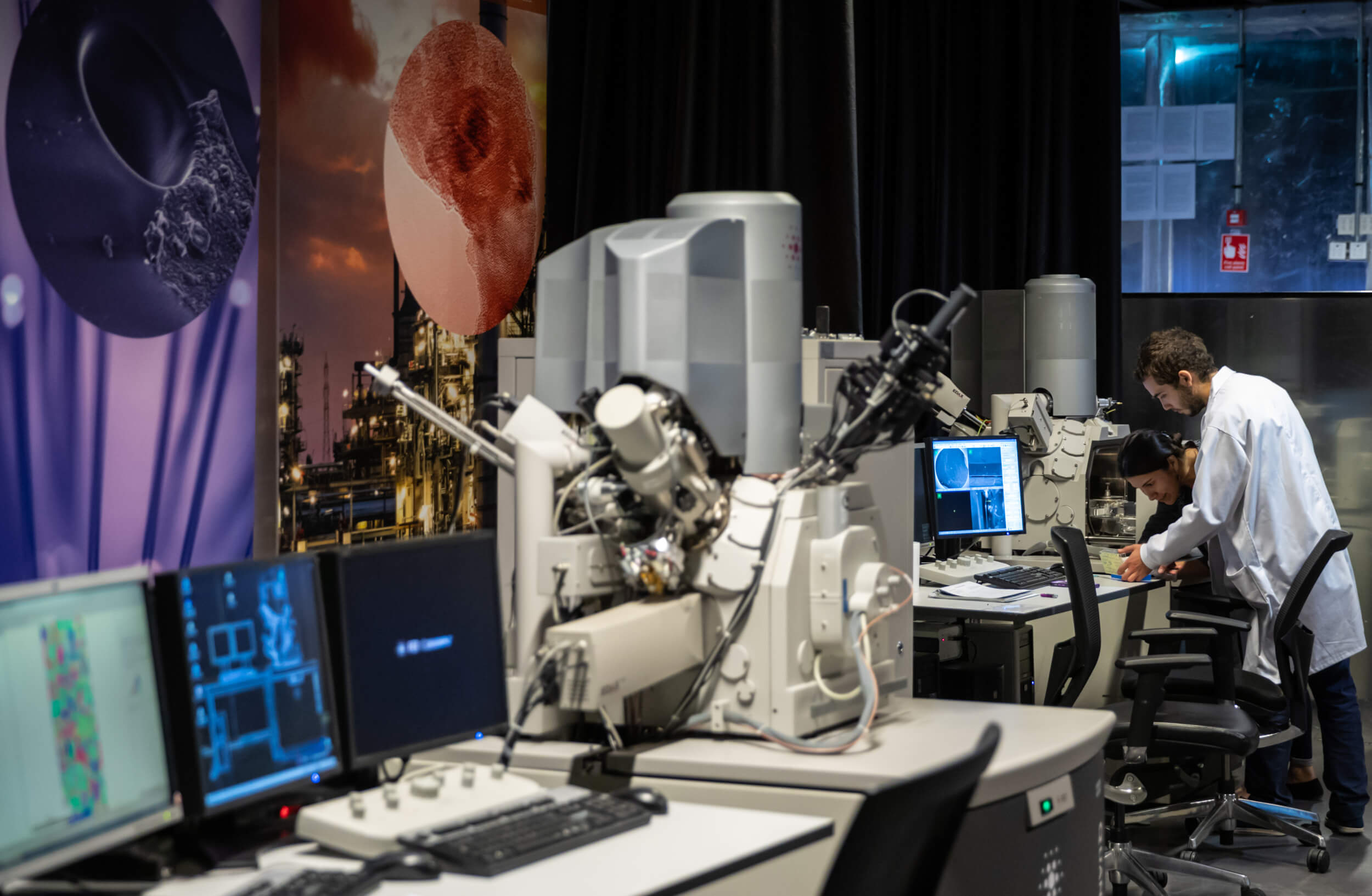
KU researchers presented eight conference papers at the Materials Research Society’s (MRS) flagship conference, the 2019 MRS Fall Meeting & Exhibition, which took place from 1 – 6 December 2019 in Boston, Massachusetts, USA. The eight papers presented by KU faculty, researchers, and students demonstrated the university’s robust materials science research activities. Two KU faculty members are the principal investigators for the papers presented at the conference – Dr. Matteo Chiesa, Professor of Mechanical Engineering and head of the Laboratory for Energy and Nano Science (LENS), and Dr. Rashid Abu Al-Rub, Professor and Acting Chair of Aerospace Engineering, Director of…
Read more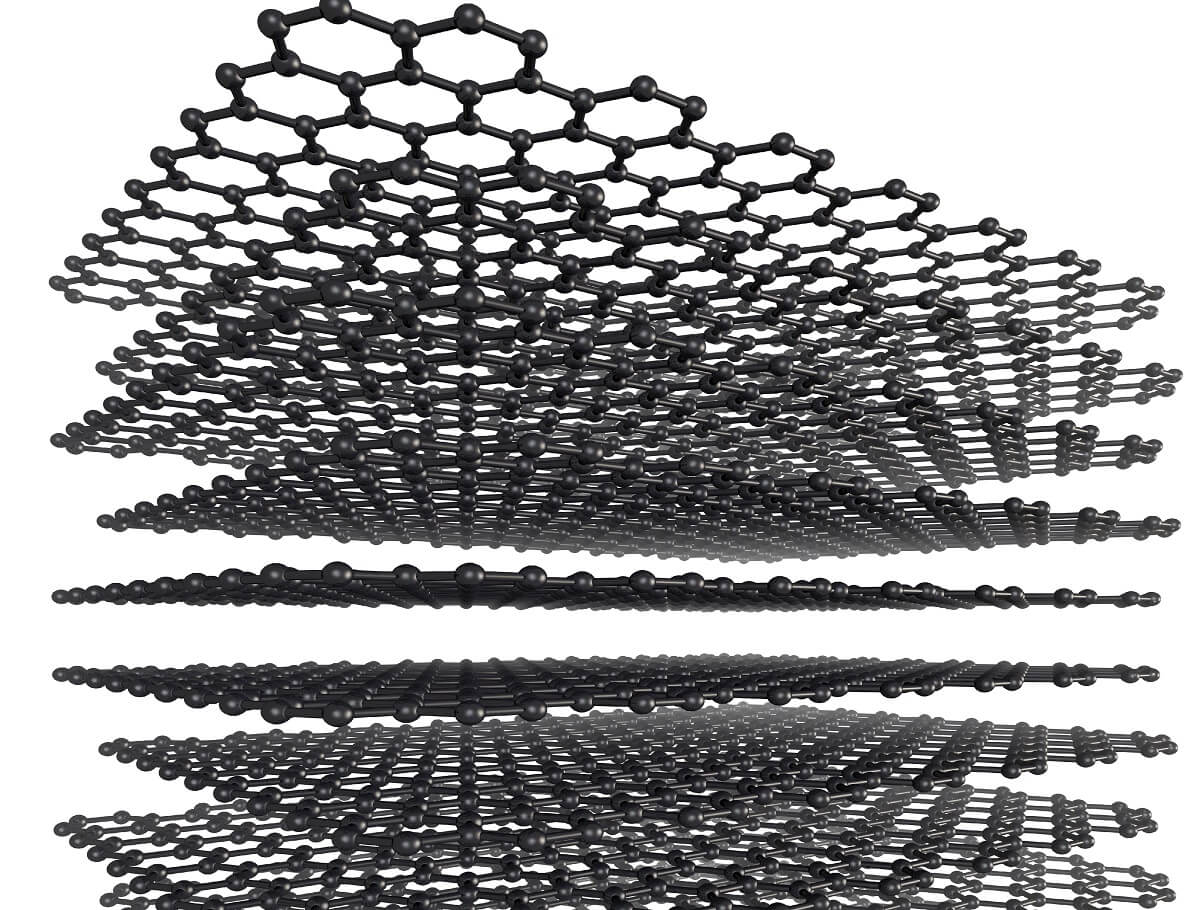
KU researchers publish the first ever review paper on layered graphene for strain and pressure sensor applications A class of nanomaterials known as cellular graphene are emerging as a promising avenue for developing more efficient, flexible and wearable strain and pressure sensors. However, a strong understanding of how to best develop cellular graphene with highly tailored mechanical properties for optimal pressure and strain sensing capability has been lacking, until now. A team of researchers from Khalifa University and the University of Cambridge, led by KU Professor of Aerospace Engineering Dr. Kin Liao, has written the first-ever comprehensive review paper on…
Read more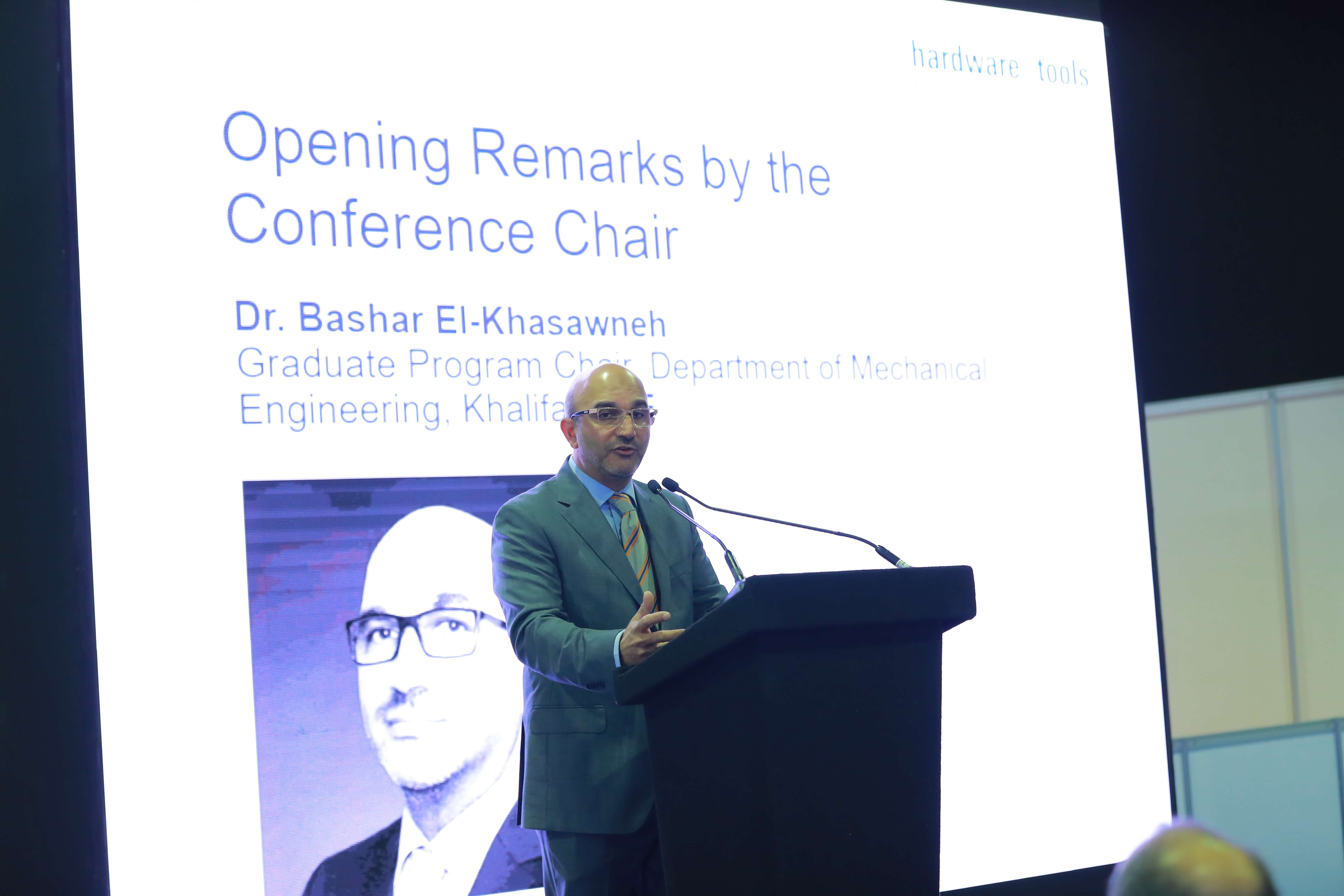
Khalifa University’s Dr. Bashar El-Khasawneh Chairs Additive Manufacturing Conference and Shares Insights on the Future of 3D Printing As a regional expert in the field of additive manufacturing, Khalifa University’s Dr. Bashar El-Khasawneh, Graduate Program Chair of the Department of Mechanical Engineering, was invited to chair the Additive Manufacturing Middle East Conference, which took place from 10 – 11 June, 2019, in Dubai. He spoke about the transformative potential of 3D printing, a sustainable additive manufacturing process, for product design and development. The conference provided a platform for researchers and industry experts to address the full spectrum of 3D printing,…
Read more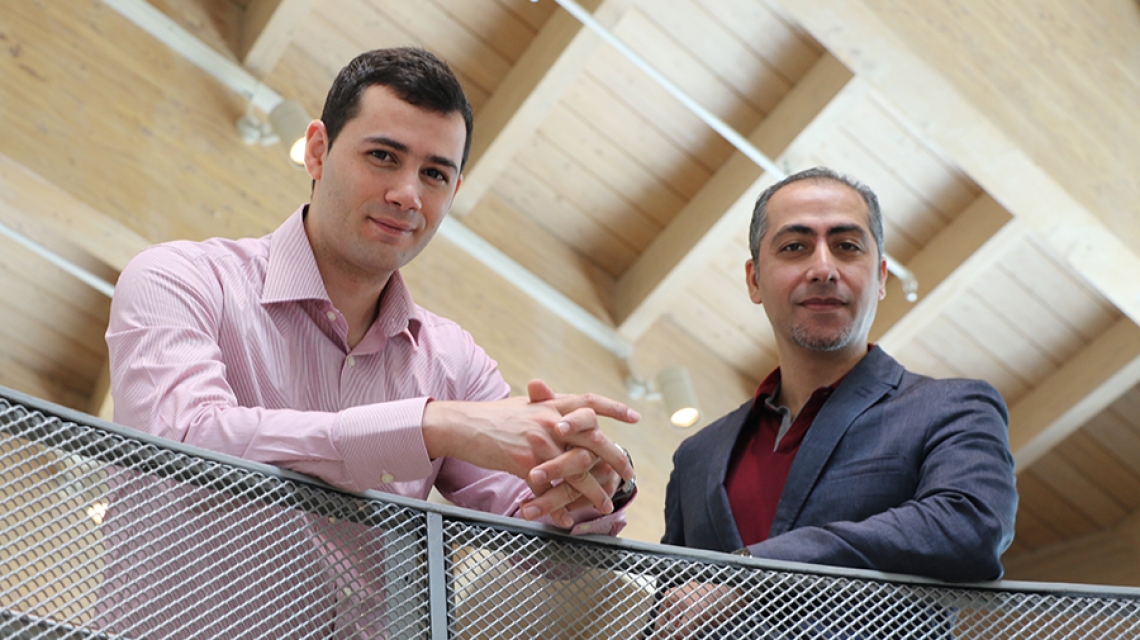
A Masdar Institute professor and student have filed a patent application with the US Patent and Trademarks Office for a novel catalytic converter prototype that has the potential to significantly reduce the amount of toxic greenhouse gases emitted through vehicle exhaust. In most developed countries, the majority of global warming gases that are produced by the transportation sector come directly out of cars’ and trucks’ tailpipes in the form of exhaust. To reduce such high levels of toxic vehicle emissions, Dr. Rashid Abu Al-Rub, Associate Professor of Mechanical and Materials Engineering at Masdar Institute, and PhD student Oraib Al-Ketan have…
Read more